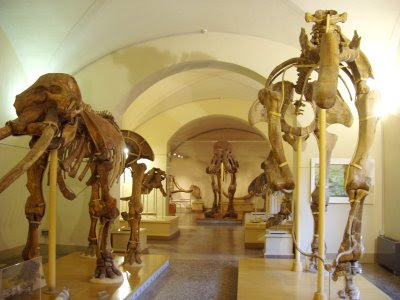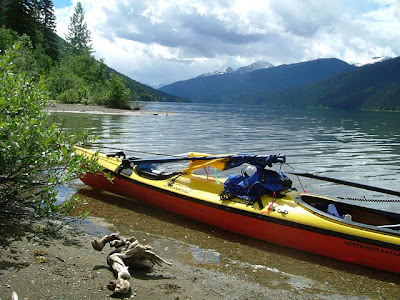

Friday 25 February 2011
Tuesday 22 February 2011
Monday 14 February 2011
Thursday 10 February 2011
STORM COMING IN: PADDLING LOCAL WEATHER
 Like most mountainous areas, Bowron makes its own weather system and it appears you get everything in a 24-hour period. In fact, whatever weather you are enjoying seems to change 40 minutes later; good for rain, bad for sun. Wisps of cloud that seemed light and airy only hours early have become dark. Careful to hug the shore, we are ready for a quick escape from lightening as thundershowers break.
Like most mountainous areas, Bowron makes its own weather system and it appears you get everything in a 24-hour period. In fact, whatever weather you are enjoying seems to change 40 minutes later; good for rain, bad for sun. Wisps of cloud that seemed light and airy only hours early have become dark. Careful to hug the shore, we are ready for a quick escape from lightening as thundershowers break.Local weather, and more importantly, wind, comes from a mixture of factors. Knowledge of the topography, the relative temperature of land and lake we paddle help predict how windy and soggy our afternoon will be. Today, the cooler air is flowing off the water up the forested slopes, heating and rising as it does so, creating a 5-15 knot intermittent force that turns ripples into small white caps.
We break for lunch to wait out the worst of it, knowing that the winds that started mid-morning will subside by late afternoon and rise again after sunset.
We snack on warm soup and flatbread, watching as our once crystal clear oasis turns to froth. Warm, dry and now with full bellies, we get back on the water.
We’re eager to push through to our next destination knowing that by nightfall the katabatic winds will arrive, as warmer air from the hillsides flows down and out over the chilly lake. We paddle in unison, enjoying the crisp air, confident that well before then we’ll be snugged in our tents sipping hot cocoa.
Monday 7 February 2011
Wednesday 2 February 2011
VOLOUBILIS: ROMAN RUINS AND FOSSIL REMAINS
 Voloubilis, a one of the pivotal cities in the expansion of Roman Empire, boasts a beautifully preserved basilica, triumphal arch, and columns of the Capitol Temple set against a backdrop of olive groves.
Voloubilis, a one of the pivotal cities in the expansion of Roman Empire, boasts a beautifully preserved basilica, triumphal arch, and columns of the Capitol Temple set against a backdrop of olive groves. The area is also home to paleontological remains from ages past. Massive trilobites and enormous elephant bones have been recovered from the fossil-rich deposits and other sites have yielded clues to our ancestors.
The remains of H. erectus and other ill-defined (it could just be my bad Arabic) species of "archaic Homo sapiens," though not well-publicized, have been found at various sites around North Africa, in Algeria and Morocco.
Subscribe to:
Posts (Atom)
